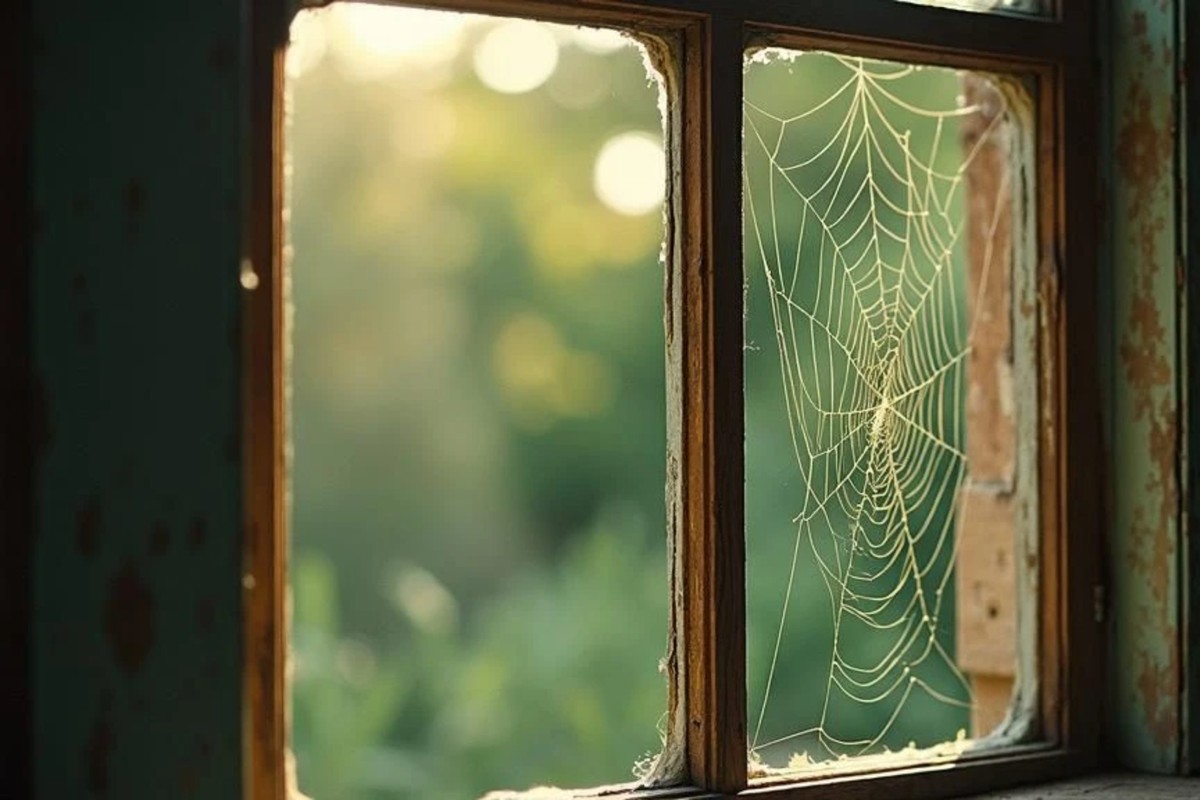
How Many Spiders Do You Eat in Your Sleep?
It’s fair to say that most of us have heard that famous old wives tale at least once in our lives “Did you know you swallow eight spiders a year in your sleep?”
With a good proportion of the British people - approximately 18% - being terrified of spiders (1). It’s safe to say that the thought of swallowing eight in your sleep is enough to make you never have a good night’s rest again.
Not to worry, we at Bensons are here to bust this little myth and let you know that actually it’s mostly false (2). While we’re not denying there is the distinct possibility of you swallowing a spider in your sleep, it’s highly unlikely that it’s eight each year.
Where did this creepy little myth come from?
Interestingly, this myth was apparently invented as a hoax to prove just how easily misinformation spreads. Supposedly, a writer included the "fact" in an article about how susceptible people are when it comes to seeing information on the internet and accepting it as the truth. This statistic about spiders was made up on purpose to demonstrate the point of the article, and ironically enough, it spread like wildfire. Fast-forward to now, and it’s one of the most widely believed myths out there.
What do actual spider experts say?
As it turns out, Arachnologists - a fancy word for those who are experts in all things spider - are all in agreement: you’re simply not swallowing down endless spiders in your sleep.
Here’s why:
-
Spiders inherently avoid humans. In reality, spiders are more afraid of us than we are of them. Us humans don’t provide a lovely home for spiders to reside in and our mouths are the last place they’d willingly be crawling into.
-
Mouths are a death trap, for spiders at least. Your mouth is warm, wet, has a distinct odour, is full of teeth – and it's constantly moving. Not exactly ideal conditions for a spider to wander in for a visit. Spiders are highly evolved and one of their most basic instincts is to survive, rather than spend their time venturing in and out of human mouths (3).
-
Good news for the snorers out there. Those readers amongst you who have an ongoing battle with snoring and getting on your partner's nerves are in luck. A spider is even less likely to approach you, so you’re actually doing your partner a favour.
-
Your senses would react. Let's say a spider did in fact crawl somewhere near your mouth. The chances are quite high that you’d feel it, your body would likely react instinctively through the form of a twitch, a cough or you might even wake up. We see you, light sleepers. You’re not completely unconscious when resting in the evening hours, your body has all sorts of reflexes that kick in to protect you, even when you feel as though you’re fast asleep.
“But I swear I felt one”
This is an entirely common phantom feeling amongst all of us, similar to how you’re convinced your phone vibrated and then when you pull it out of your pocket, no notifications await your attention. The sensation of something crawling on your skin can be a variety of things such as static electricity, random firing of nerves or the slight anxiety and overthinking that some of us insomniacs can fall into (4).
We’ve all been there: lying awake at 2am, half convinced there’s something on your leg.
Spoiler: it’s your blanket. Or maybe it’s just your imagination playing up after one too many late-night true crime podcasts.
Do people ever swallow anything weird in their sleep?
Well, it is rare – but it’s not impossible. People who grind their teeth or suffer from sleep apnoea, for example, may occasionally breathe in some unwanted nasties such as dust, fluff, or tiny bugs, particularly if they’re sleeping with their mouths open. Not ideal, however worry not, it’s still very unlikely to be a spider.
Of course there are a few tales out there of people waking up with the odd bug bite or finding a spider somewhere in the vicinity of their pillow. However, this does not mean the spider has taken itself on an adventure down your trachea. Also, spiders typically bite in self-defence, not for fun, and even that’s rare in the UK unless you’re an avid camper.
So how many spiders do you eat in your sleep?
Let’s break it down clearly:
-
Does everyone swallow eight spiders a year? No.
-
Even one in your lifetime? Highly doubtful.
-
Any at all, ever? Now that, we can’t guarantee.
Fun fact: you’re never more than 6 feet from a spider
You’ve probably heard that one too – that you’re never more than six feet from a spider at any given time. While it’s not scientifically proven, and potentially another myth, it’s probably closer to the truth than the idea of swallowing them in your sleep (5). Spiders are constantly around us – apologies arachnophobes - they’re hiding in the corners of our rooms, behind furniture, in the depths of the shed, but luckily for us, they’re not in the habit of hunting humans. They’re simply just going about their business, catching flies and living their own lives.
Frankly, we should be grateful. They’re nature’s pest control – cheap, eco-friendly, and surprisingly shy.
Final thoughts: sleep easy
So, if the thought of swallowing spiders has ever kept you up at night, you can hopefully relax after reading this post. The myth is fiction, simply an idea created to see how easily misinformation can spread.
The spiders aren’t queuing up to make a home in your mouth while you’re sleeping. They want to stay far away from you, and really, we can’t blame them for that one.
So feel free to sleep with your mouth open if that’s what entices you. Your biggest worry isn’t spiders – it’s probably your alarm clock.

Gemma Henry - Content Lead
Gemma finds sleep fascinating and describes the discovery aspect of her role as eye-opening. Her keen eye for detail and dedication to thorough research ensures that Bensons customers get the informative sleep-based advice they're looking for.